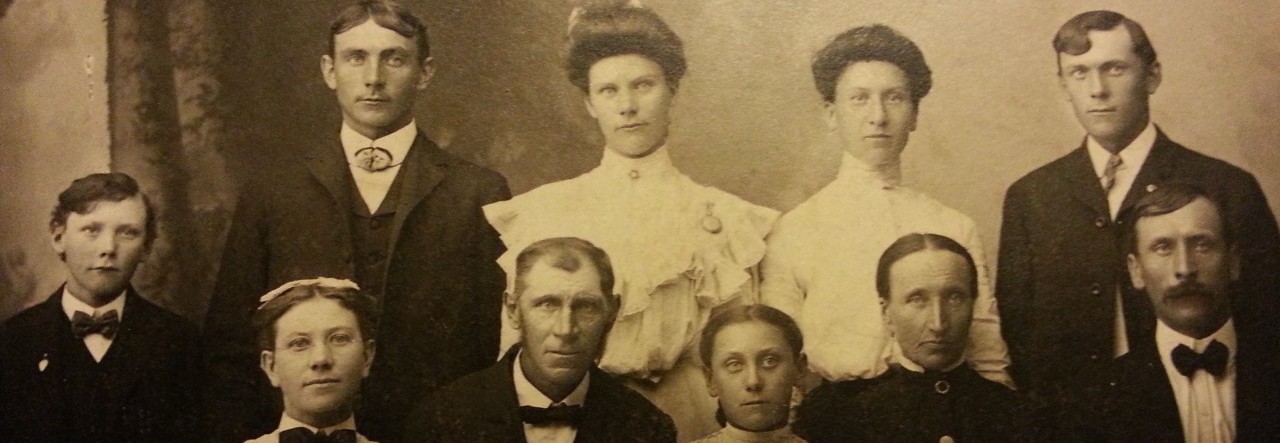Religious records are a wonderful resource, especially if a vital record no longer exists. Religious records can contain baptism records, marriage records, burial records, and more. Sometimes there are cemetery records if the organization is connected to one. This article will focus on some religious records you can find in American genealogy.
I apologize now that this does not include all religions. If you know of records found in religions that are not mentioned, please post in the comments below with what you know.
Figuring Out The Religion Of Your AncestorFiguring out what religion your ancestor was a part of can be a bit of a challenge. Obituaries can sometimes give you an answer but there obviously weren’t always obituaries. Sometimes you can figure it out based on what religion your family has currently, but if your ancestors are anything like mine, that changed often.
There are some known associations – like that Germans tended to be Lutheran (but can be Catholic if came in the mid 1800’s and later), Scots tended to be Presbyterian, English tended to be Anglican or Congregationalist, and the Dutch tended to be part of the Dutch Reformed Church. Of course, there are always exceptions to this but it can give you a place to start.
The best idea would be to check to see what religious organizations were around the area of where your ancestor lived when vital record events happened. If you know, for example, that there were only two churches available at the time of your ancestor’s death, you have a narrowed down list and a starting point. If you happen to know what cemetery they are buried in, that is also a clue. A religious organization could be associated with the cemetery at the time of your ancestor’s death or even currently. Also note any clubs or organizations your ancestor was a part of as those can be sometimes linked to a religious organization.
Records
Birth/Baptism Records –
- These can be the actual certificate but you’ll most likely find a register book with this information.
- Keep in mind that not all denominations practice infant baptisms. But if they do, a baptism record can give you an idea of the date of birth. Also, these records can name the parents and sponsors (who are most likely related).
- Jewish synagogues may have circumcision records. Also birth records are noted in Synagogue Minutes Books and Bulletins.
Marriage Records –
- These are most likely kept in register books.
- The information varies as much as religious practices. Normally you’ll find the bride and groom’s names, date of the marriage, and the officiate. Sometimes it’ll include parent’s names, witnesses, current residences, ages, birthdays, etc.
- Sometimes you’ll find only that a marriage was planned or intended. These are called banns in a number of churches. These can sometimes be kept in a banns book, separate from a marriage register.
- Quakers are another group where the couple would have to get permission first. The couple would have to appear before meetings to make their intent known and to receive permission to marry. The marriage should be noted in a meeting report later on.
Burial Records –
- Again, this could be in a register book or the certificate but most places would likely have a register book.
- Information can include name, date of death, date and place of burial, age, and spouse or next of kin.
- Some register books, especially in smaller areas, can give more information on the person and the person’s death.
- Here is where you may find cemetery records if there is a cemetery associated with the institution.
Other Records –
- Business records
- Transfer/Removal Records
- Membership Records (these can also have death information in them)
- Bar/Bat Mitzvah and Confirmation Records
- Minutes or Meeting Records (Quakers and Jewish Synagogues may have these)
Where to Find the Records
- The Place Itself – sometimes the actual institution will still have records. The church I grew up in, for example, has a number of records BUT there was a fire that destroyed all the earlier records. So, a person wrote down an account of what he knew about the beginning of the church since the original records were lost but it is obviously incomplete. The religious institution may not know where the older records are kept but it never hurts to ask!
- Archives/Historical Societies – Some religious institutions have a historical society or archive dedicated to old records. Records can also be found in state archives and local historical societies as well. If the church doesn’t have the records, see if a library, historical society, museum, or local genealogy group has more information for you.
- Microfilm – Some microfilm may be online for viewing as well. FamilySearch.org has a number of religious records available on microfilm, which you can pay to borrow and have it sent to a local LDS church near you for you to view.
- Online Sites – places like DAR have some transcriptions in their library catalog. Also, some local genealogy communities will put an index online of religious records as well as how to get to the original record. Doing a simple search on Google or checking with Cyndi’s List are also good ideas.
Please feel free to comment and add to the conversation! Not all religions follow the general guidelines above so please add any information you may have about other religious records.
Happy hunting!


![By Pubdog (talk).Pubdog at en.wikipedia [Public domain], from Wikimedia Commons](https://i0.wp.com/www.copperleafgenealogy.com/wp-content/uploads/2015/02/Charlotte_Hall_Historic_District_Dent_Chapel_Jul_09.jpg?resize=512%2C685)